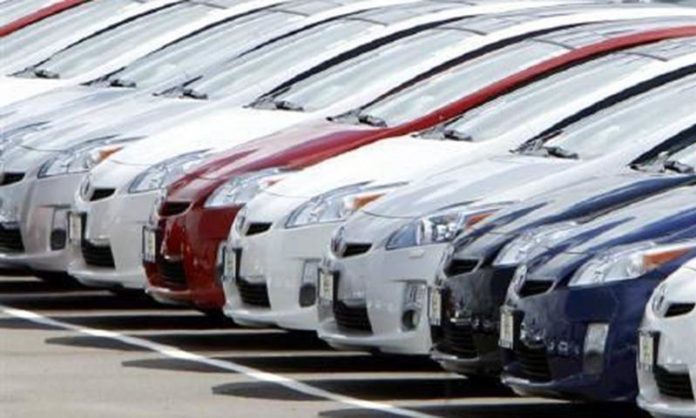KARACHI: The competition in Pakistan’s automobile sector is heating up as reputed companies like Renault and Volkswagen enter the fray.
The emerging threat of aforementioned international automobile manufacturers entering the domestic market has forced the local assemblers to retool their strategy and pivot towards manufacturing new light commercial vehicles (LCVs) for 2018 and 2019.
But local auto manufacturers are eager to keep their strategy under wraps regarding launch of new vehicles in the New Year, as unnamed vendors disclosed Pak Suzuki Motor Company is set to introduce a 660cc Suzuki Alto during first quarter of 2019.
In July 2017, Pak Suzuki Motors announced it would stop offering CNG variant of Suzuki Mehran due to shortage of gas that hit the sector hard in 2012-2013. Now, it is being said Mehran’s manufacturing will cease, reported Dawn.
Profit’s cover story in issue 23 reported Indus Motor Company (IMC), the makers of Toyota Corollas in Pakistan, was replacing its hottest brands Xli and Gli, with new 1300cc variants – a hatchback Yaris and a sedan Vios.
It further stated “The production of 1300cc variants were almost halted earlier this year but then the management sought extension from the Japanese to continue procuring Xli and Gli parts till 2018 so they could complete the long queue of existing orders.”
“The Xli and Gli will discontinue in 2018 for sure because Japan has approved only 1600cc for its Corolla range, the official said. The work on the new variant project has commenced already and IMC’s team has been visiting Thailand for training classes regarding the launch of Vios, a 1000cc sedan, which will hit the market end of next year, he said – and if numbers are any indication, Toyota Japan can’t afford a further delay.”
IMC CEO, Ali Asghar Jamali stated significant investment was being infused in the automobile sector, due to entrance of renowned international companies. He added, IMC always concentrated on localization to enhance industrial growth.
Corolla has already achieved more than 70 percent localization, Jamali said.
Thanks to expected growth and expansion of automobile sector, will only make it merrier for customers as they will have a wider range of cars and LCV’s to choose form.
Also, local manufacturing and transfer of technology will help Pakistan save precious foreign exchange and make cars more competitively priced.
And a report from brokerage house Topline Security earlier this week claimed Honda Atlas is considering introducing its hunchback variant of 3,000 locally assembled units of Brio 1,200cc from January 2019.
A veil of secrecy seems to be the norm for local automobile manufacturers regarding future investment plans and models they intend on introducing. Masafumi Harano, Director Pak Suzuki commented “It would be good if the newcomers build their plants (in the country)”.
When Mr. Harano was queried about what strategy Pak Suzuki had formulated as competition intensifies between upcoming entrants and decades-old established players in the sector, he remarked “decades-old existing players” moniker was unjustified.
He added, the sector was expected to grow by 15-20 percent by 2019-20.
Marketing Director (MD), Farhan Hafiz of Al-Haj Faw Motors believes increased competition would help spread awareness among car users. Hafiz said its current models, XPV (Van), FAW Carrier and V2 (hatchback) on offer were superior and had better built quality, fuel efficiency, safety features in comparison to its competition.
Furthermore, MD Al-Haj Faw Motors added the company plans to introduce more environment-friendly and advanced vehicles into the market soon and show Chinese vehicles were as good as any other car in the world.




